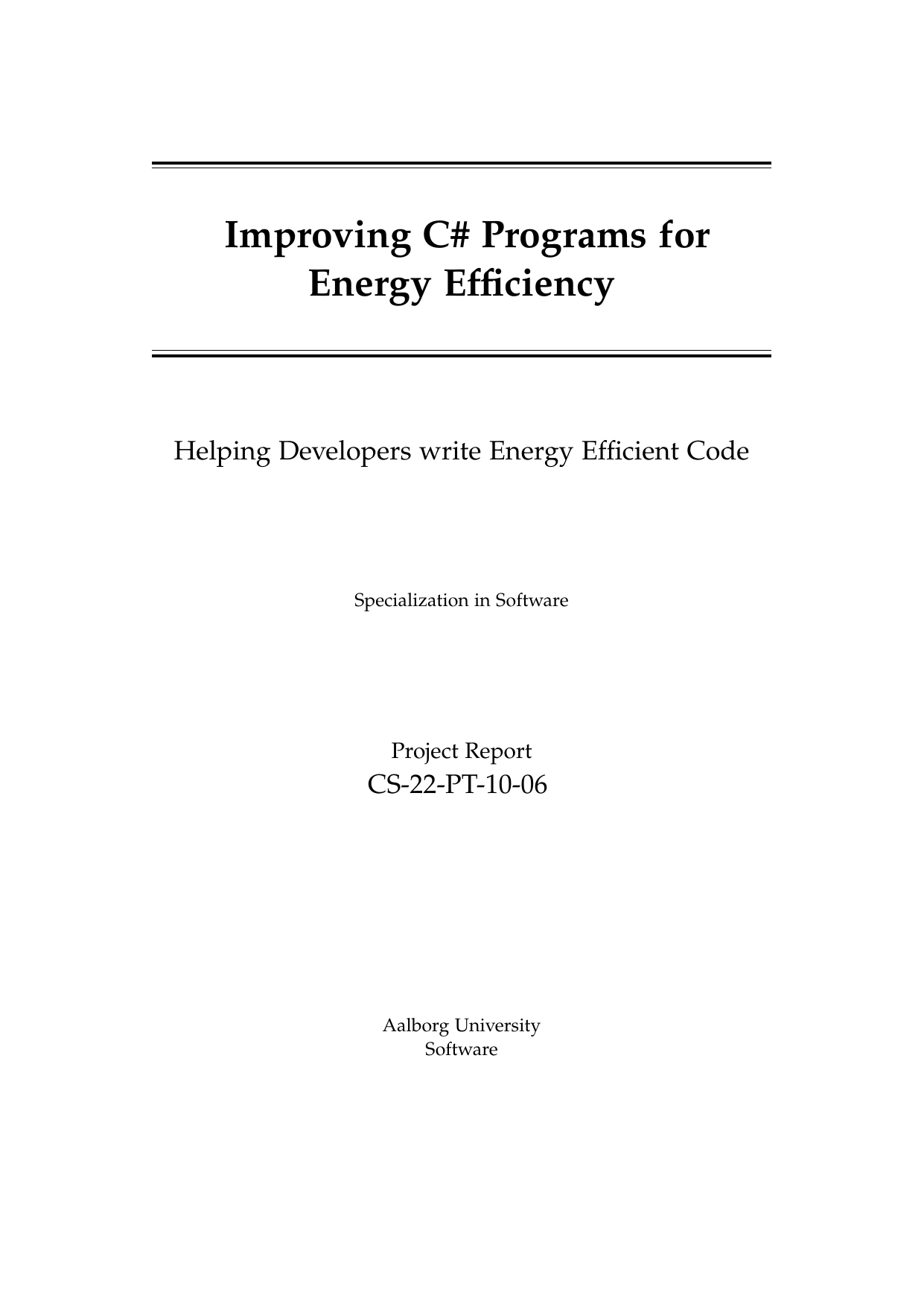
Improving C# Programs for Energy Efficiency: Helping Developers write Energy Efficient Code
Term
4. term
Education
Publication year
2022
Submitted on
2022-06-08
Pages
157
Abstract
This project builds upon our research into the energy consumption of language constructs in C# to create a linter called Energy Analyzer. First, we create microbenchmarks, we use the results from these microbenchmarks and the microbenchmarks from our previous research, and apply them to larger benchmarks to see if the results can be generalized into larger programs. We use the results from the larger benchmarks to create Energy Analyzer, which is a NuGet package that aims to help developers write more energy efficient C# code. Energy Analyzer consists of two parts, a suggestion part, which finds C# constructs with energy efficient alternatives and gives the suggestion to change the construct to the energy efficient alternative. The second part is the code fix part, which, if chosen by the developer, automatically changes the construct to a more energy efficient one. We evaluate Energy Analyzer in both performance and usability, where we find 15,05% energy consumption can be saved in one benchmark, while no significant difference can be found in another benchmark, while the usability was satisfying for the tested developers.
This project builds upon our research into the energy consumption of language constructs in C# to create a linter called Energy Analyzer. First, we create microbenchmarks, we use the results from these microbenchmarks and the microbenchmarks from our previous research, and apply them to larger benchmarks to see if the results can be generalized into larger programs. We use the results from the larger benchmarks to create Energy Analyzer, which is a NuGet package that aims to help developers write more energy efficient C# code. Energy Analyzer consists of two parts, a suggestion part, which finds C# constructs with energy efficient alternatives and gives the suggestion to change the construct to the energy efficient alternative. The second part is the code fix part, which, if chosen by the developer, automatically changes the construct to a more energy efficient one. We evaluate Energy Analyzer in both performance and usability, where we find 15,05% energy consumption can be saved in one benchmark, while no significant difference can be found in another benchmark, while the usability was satisfying for the tested developers.
Keywords
Documents
